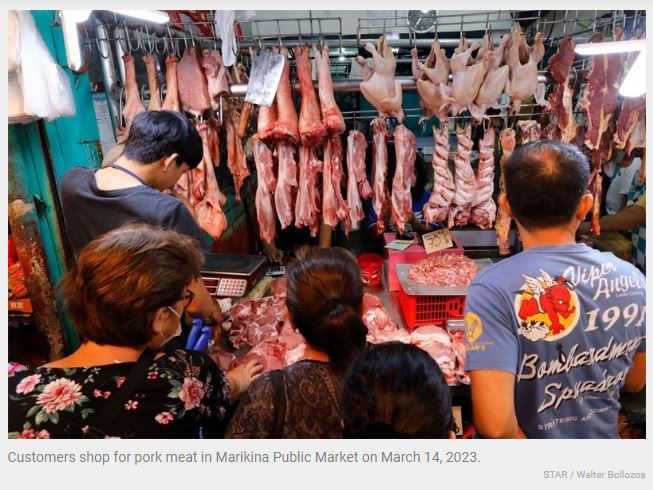Philippines demand of imported meat slows in Q1
MANILA, Philippines — The Philippines saw a slower growth in meat importation in the first quarter as pork shipments dropped.
Data from the Bureau of Animal Industry (BAI) showed the country imported 265.52 million kilos of meat and meat products during the three-month period.
This was only 1.03-percent higher than the 262.81 million kilos shipped in the same period last year.
Pork was the top major imported meat for the period, accounting for 43.24 percent of the total.
However, pork imports decreased by 17.23 percent to 114.82 million kilos from 138.74 million kilos shipped in the same quarter last year.
In its latest report, the United States Department of Agriculture (USDA) said pork imports may decline to 525,000 MT from 560,000 MT due to higher pork prices in the international market and lower demand.
It also said local demand for pork may slowdown “because of the effect of food inflation, which leaves little purchasing power for pork.”
The BAI data showed pork offals – or internal organs – accounted for over half of the pork products with 58.32 million kilos, while pork cuts came in second with 26.54 million kilos.
Spain continued to dominate pork imports at 32.88 million kilos, followed by Canada at 15.75 million kilos, and Brazil at 13.21 million kilos.
Chicken imports accounted for over a third of the total or 38.69 percent at 102.74 million kilos, which jumped 31.85 percent from 77.92 million kilos shipped in the previous year.
Mechanically deboned chicken meat was the top imported product at 54.08 million kilos, followed by chicken leg quarters at 30.20 million kilos.
The top two sources of chicken meat were Brazil at 56.62 million kilos and the US at 36.23 million kilos.
The USDA projected chicken imports to increase to 520,000 MT from 497,000 MT due to higher demand, as consumers prefer chicken meat as the next available less expensive protein source from egg, which has seen price spikes as of late.
Figures from BAI also showed beef imports, which accounted for 12.48 percent of the total, slipped by 11.26 percent to 33.15 million kilos from 37.36 million kilos.
Of the beef products, beef cuts accounted for the bulk at 19.93 million kilos, followed by fats at 4.92 million kilos.
Australia was the top source at 10.58 million kilos, followed by Brazil at 10.07 million kilos.
Buffalo imports rose by 70 percent to 14.47 million kilos from 8.49 million kilos, with forequarter nearly doubling from last year’s volumes.
The country shipped 102,717 kilos of whole and duck meat, and 140,686 kilos of lamb meat in the first three months.
This is significantly higher than the 17,309 kilos of duck meat and 61,858 kilos of lamb meat products imported in the same period last year.
As for turkey, shipments dropped by 60.76 percent to 87,739 kilos from 223,642 kilos last year.
Source: https://www.philstar.com/business/2023/04/18/2259602/philippines-demand-imported-meat-slows-q1


 Thailand
Thailand




